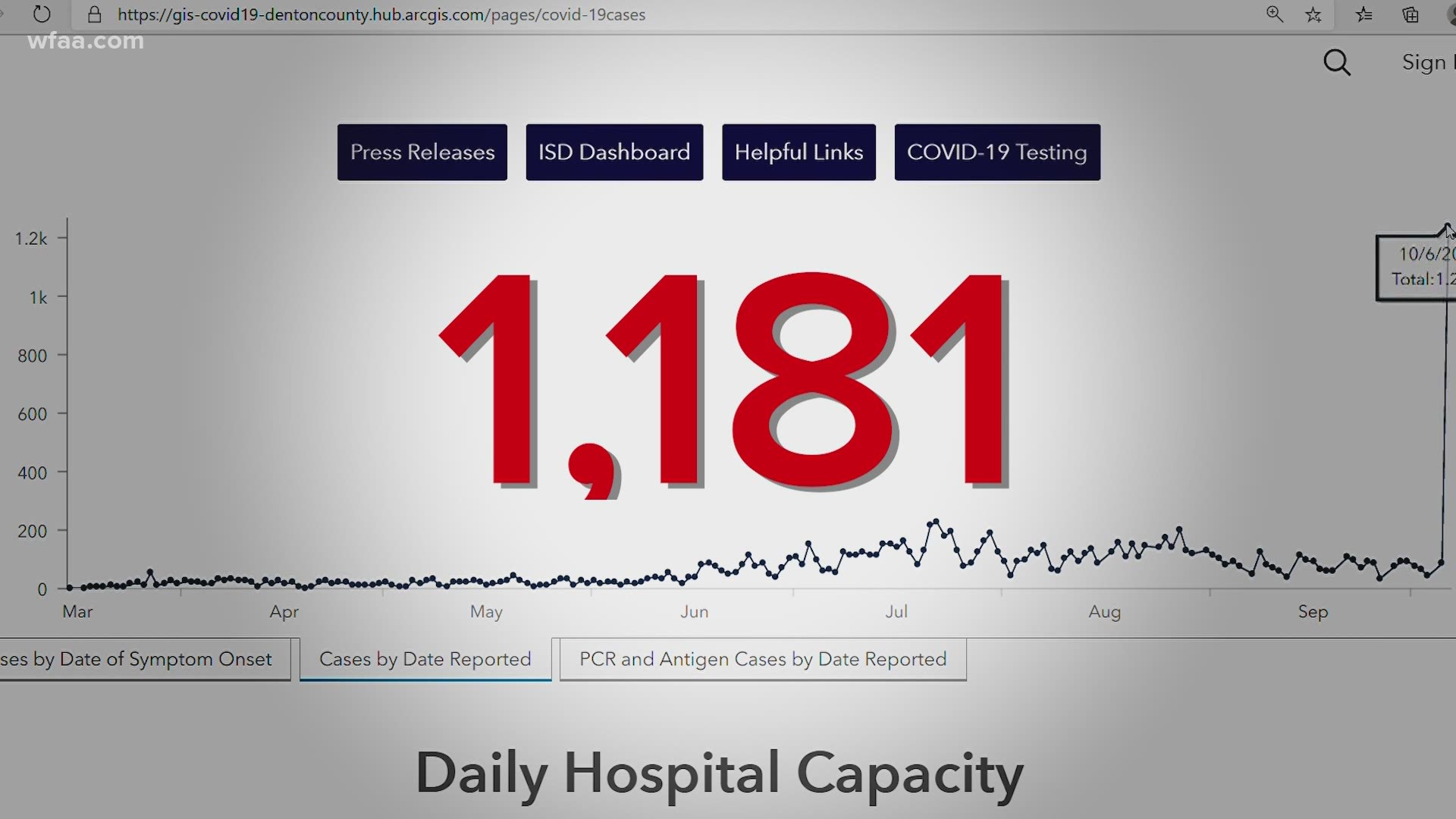DALLAS — Denton County Public Health officials reported Tuesday that they will start including antigen tests in their daily COVID-19 case count reports.
There are some aspects to this test that allow it to provide quicker results but also make it a less reliable system to let patients know if they do have the virus.
What is an antigen test?
An antigen test reveals a current coronavirus infection and provides results much faster than a molecular test. It is also known as a rapid diagnostic test.
An antigen test is taken using a nasal or throat swab. It detects specific proteins on the surface of the virus.
Antigen test results are usually available in an hour. Positive results are said to be highly accurate, according to the FDA and CDC, but negative tests may need to be confirmed with a molecular test.
The FDA authorized certain at-home test kits that require doctor approval and lab analysis. The agency warns people against buying unauthorized COVID-19 home tests because of potential accuracy issues.
Antigen vs. antibody vs. molecular tests: How are they different?
There are three main types of tests for COVID-19. Molecular tests and antigen tests diagnose if you are currently infected with the coronavirus. Antibody tests show if you previously were infected.
Molecular tests are more accurate than antigen tests in that they are less likely to produce a false negative, but take longer to process. The FDA says results can take anywhere from later the same day to up to a week.
While an antigen test detects proteins, a molecular test detects the virus's genetic material.
Antibody tests, which require a blood draw, are usually available the same day or up to three days later, the FDA says. Antibody tests do not show an active infection. According to the FDA, it can take days or weeks to build up enough antibodies to have a positive antibody result.
Where can I find an antigen test?
Most emergency center locations in Texas are providing antigen tests along with molecular tests and antibody tests.
It is best to check with your doctor to decide the best and safest way to get tested.
If you do not have health insurance, you can still get tested for COVID‑19 if your doctor or healthcare provider recommends it.
For information about testing, you should call your doctor and/or access care the way you usually do.
If you need help finding a doctor or accessing medical care, call 2‑1‑1 and they can direct you to low- or no-cost providers in your area.
People can get tested for COVID‑19 at public testing sites or drive‑thru locations in certain parts of Texas.
How accurate is an antigen test?
The CDC's current "gold standard" for COVID-19 detection is still a molecular test. This is the most accurate way to get tested.
The first approved antigen tests demonstrated sensitivity ranging from 84.0%-97.6%, according to the CDC.
In most cases, negative antigen diagnostic test results are considered presumptive. The CDC recommends confirming negative antigen test results with a molecular test, especially if the patient is symptomatic or has had a known exposure to a person confirmed to have COVID-19.

